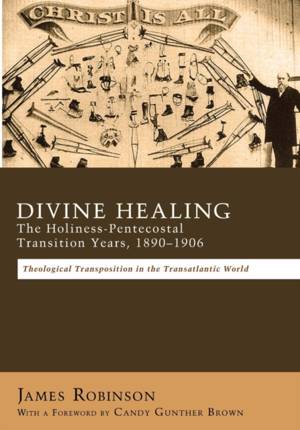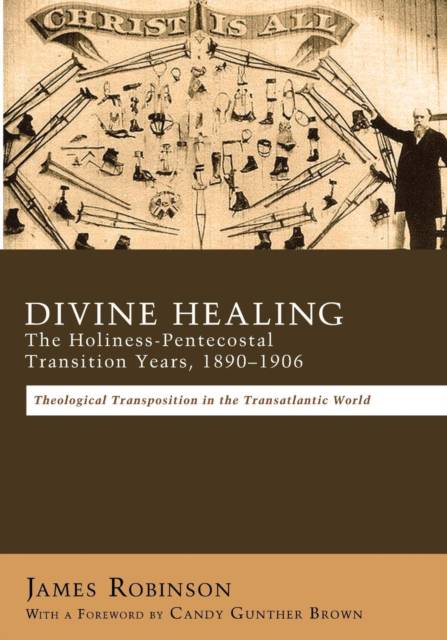
Bedankt voor het vertrouwen het afgelopen jaar! Om jou te bedanken bieden we GRATIS verzending (in België) aan op alles gedurende de hele maand januari.
- Afhalen na 1 uur in een winkel met voorraad
- In januari gratis thuislevering in België
- Ruim aanbod met 7 miljoen producten
Bedankt voor het vertrouwen het afgelopen jaar! Om jou te bedanken bieden we GRATIS verzending (in België) aan op alles gedurende de hele maand januari.
- Afhalen na 1 uur in een winkel met voorraad
- In januari gratis thuislevering in België
- Ruim aanbod met 7 miljoen producten
Zoeken
Divine Healing: The Holiness-Pentecostal Transition Years, 1890-1906
Theological Transpositions in the Transatlantic World
James Robinson
Paperback | Engels
€ 37,95
+ 75 punten
Uitvoering
Omschrijving
In the present volume, James Robinson shows how the Holiness movement contributed to the rise of Pentecostalism, with emphasis on those sectors that practiced divine healing. Although other scholars have undertaken to explore this story, Robinson's treatment is by far the most thorough examination to date. He draws productively on the burgeoning secondary literatures on Pentecostalism and healing, and brings to light frequently overlooked, yet revealing primary sources. The events narrated are fascinating in their own right, and are important to the histories of Pentecostalism and healing for how they clarify the processes by which divine healing was pursued, debated, and often disparaged. The text also contributes to larger medical and social histories, offering tantalizing glimpses of the roots of some of today's most popular and contested medical and religious responses to sickness and health.
Specificaties
Betrokkenen
- Auteur(s):
- Uitgeverij:
Inhoud
- Aantal bladzijden:
- 238
- Taal:
- Engels
Eigenschappen
- Productcode (EAN):
- 9781620324080
- Verschijningsdatum:
- 6/03/2013
- Uitvoering:
- Paperback
- Formaat:
- Trade paperback (VS)
- Afmetingen:
- 178 mm x 251 mm
- Gewicht:
- 430 g

Alleen bij Standaard Boekhandel
+ 75 punten op je klantenkaart van Standaard Boekhandel
Beoordelingen
We publiceren alleen reviews die voldoen aan de voorwaarden voor reviews. Bekijk onze voorwaarden voor reviews.









